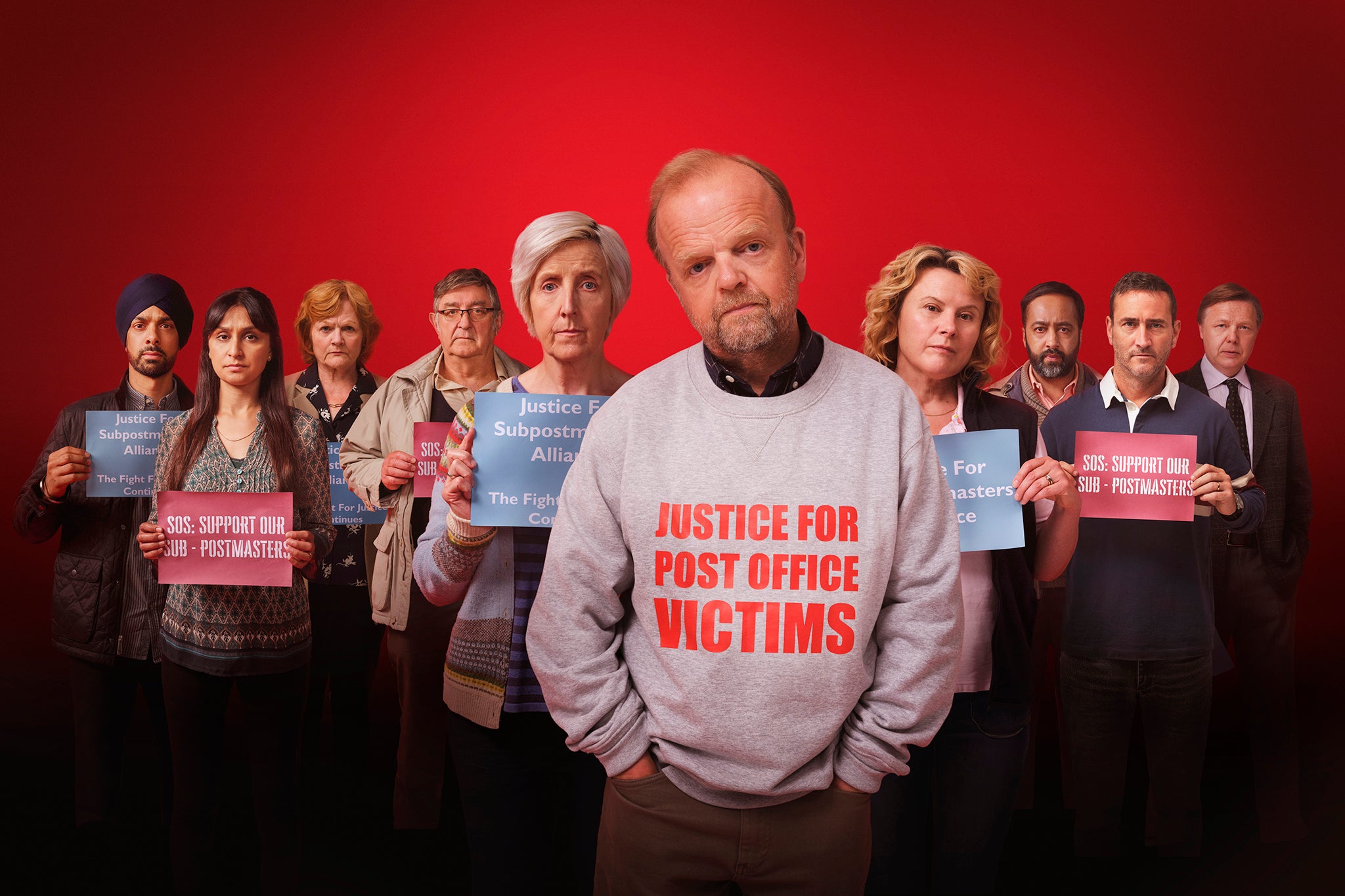I was in Mr Bates vs the Post Office – it raises one very important question about the UK
We were lucky that the ITV drama finally forced the government’s hand to right this injustice, writes BBC special correspondent James Naughtie


It wasn’t exactly a weighty line from King Lear and there was no chance for a soliloquy. But the words had a certain ring: “We did ask the Post Office for an interview. No one was available.” We were in a mocked-up Today programme studio in a university building in London last summer, recreating an interview from about a decade ago for the now-celebrated drama, Mr Bates vs The Post Office.
I was the real-life straight man for Monica Dolan as the indefatigable subpostmistress Jo Hamilton, and Alex Jennings, playing the dogged Tory MP James Arbuthnot (now in the Lords). I knew perfectly well – with relief – that anyone reaching for a drink in front of the TV at the crucial moment would miss me, because after a couple of exchanges I’d have disappeared before they turned back.
Yet it was delicious. Reading Gwyneth Hughes’s script from start to finish beforehand was to be reassured by the power of diamond-sharp storytelling, even before a single actor had got hold of it and Toby Jones became the eponymous Mr Bates. “No one was available.” Real words from the interview, and a little downbeat, because we hear them so often. But in this context? A punch in the gut.
Everyone has a theory as to why the stars lined up in a particular way to turn this drama into a political wrecking ball, with the government doing in 24 hours what ministers had been saying for years couldn’t be done at all, and a Fujitsu boss discovering in front of a Commons committee a “moral obligation” (with vast amounts of money attached) that had been denied for decades. But it’s simple. People want someone to be “available”. Perhaps even accountable.
The joy of the drama was that although it explored the workings of sub-post offices and their place in our communities, it spoke to feelings that spread far beyond this scandal itself. Towards corporations – and some public bodies too – that seem to be driven mostly by a crude urge to deflect criticism by any means, with huge communications departments paid to deliver protection at any cost.
Remember how the Post Office PR boss was congratulated for delaying yet another story about the scandal… without anyone asking at the same time for a serious assessment of the truth about it, while the prosecutions rolled on. That was evidently not part of the equation. More even than a question of “accountability” in the technical sense, this is about a state of mind.
Never forget how successfully the Post Office powered on for years, despite a string of stories (especially in Computer Weekly and, of course, Private Eye) and a notable factual series on Radio 4 and then a Panorama investigation that asked all the right questions.
The Post Office decided to take a bulldozer to any public anxiety that might be stirred up, costing lives and ploughing through many families in the process. Admit nothing, stick to the plan. They clearly felt an obligation to sweep everything away, and neither to ask where the mess had come from in the first place, nor to pursue the evidence they already possessed about the unreliability of the discredited Horizon computer system.
Perhaps the arrival of Mr Bates as Everyman allowed everyone to cast their eyes more widely. Blessed with the uplifting setting of the North Wales landscape on his doorstep, he could hint at a profound question lying underneath all the hardships he helped to expose. What kind of country do we want to be?
The Brexit episode that has reshaped our politics as well as our economy, was driven on the “No” side by the spectre of a remote power that was said to have to be expunged. The Post Office has discovered, when many TV viewers this month could see more clearly than perhaps they had before, that remoteness is an infection often found much closer to home, and rampant.
And how much worse it is when the perpetrators, like the Post Office, play on the very sense of community that their PR forces and lawyers will, in the end, not strengthen but undermine?
Mr Bates stood in front of the bulldozer. No doubt there will be some others who will do the same – but it will never be easy.
The power of these forces is increasing, not diminishing.
Which is why, when we hear the words “no one was available”, we should always ask: why not?
James Naughtie is a special correspondent for BBC News
Join our commenting forum
Join thought-provoking conversations, follow other Independent readers and see their replies
Comments